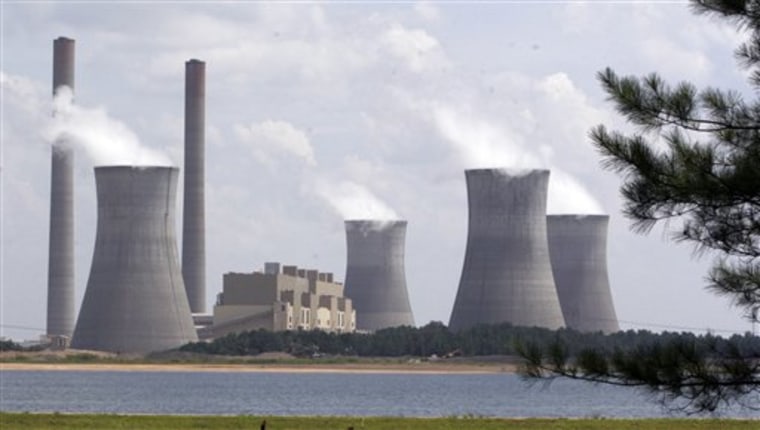A Senate bill to cut greenhouse gases and address global warming is heading toward almost certain defeat after nearly a week of stalemate and partisan bickering. Each side accuses the other of obstruction, trickery and political games.
As a result, it will be up to the next Congress and President Bush's successor to deal with this most important environmental issue. Both presidential candidates, Democrat Barack Obama and Republican John McCain, have promised to pursue mandatory pollution reductions to reduce the risk of climate change.
Supporters have concluded there is virtually no chance for the 60 votes needed to break a Republican filibuster, several senators told The Associated Press. They spoke on condition of anonymity because efforts continued to win support for the legislation.
Senate Majority Leader Harry Reid, D-Nev., has set a vote for noon ET Friday to try to overcome a GOP filibuster on the 492-page bill. He has pledged to pull the bill if it does not meet the 60-vote threshold.
The measure would require power plants, refineries and factories to reduce their carbon dioxide and other greenhouse gases by about 19 percent by 2020 and by 71 percent by midcentury. Along with capping emissions, it would establish a pollution allowance trading system to ease the transition from fossil fuel use and help people pay energy bills.
The legislation has been in trouble from the start.
A GOP filibuster threat prevented Democrats from moving quickly at the beginning of the week to consider amendments. On Wednesday, the Republican leader, Sen. Mitch McConnell of Kentucky, required that all 492 pages be read into the record — an almost unheard of move that took 8 1/2 hours, ending at 9:45 p.m.
McConnell said he did so because of a dispute over judicial nominations. Reid saw it as stonewalling and an attempt to scuttle the legislation. He moved to essentially block Republican amendments on the bill and set the Friday deadline.
At a news conference Thursday, the leading sponsors said they had not given up.
"We're going to do everything we can. I've never said we've got 60 votes," said Sen. Barbara Boxer, D-Calif. But her tone was one of resignation.
"This is a road map," she said, adding it will provide to the next president "where they have allies" and where might be the pitfalls.
Sen. John Warner, R-Va., said he had "done the best I can" to get the message out to fellow Republicans to support the bill on national security grounds. About five Republicans had agreed to join him.
But some Democrats who had indicted they would back the bill with some changes drop away after it became clear they would not have a chance to offer their amendments.
McConnell blamed Reid for cutting off GOP opportunities to offer amendments and insisted Republicans were ready to consider the legislation for weeks. The Senate spent five weeks on the Clean Air Act in 1990, an equally complex bill, he said.
"We welcome this debate," McConnell told reporters. "If this is the most important issue facing the planet, it is ludicrous to think we're going to do this in four days with no amendments."
Democrats countered that Republicans all along had sought to undermine the bill, which most GOP senators strongly oppose.
"You can't have a more important issue to be dealing with on the floor of the Senate," said Sen. John Kerry, D-Mass. Taking aim Republicans, he said the deliberations had been "reduced to trickery and gimmicks and parliamentary games."
Sen. Joe Lieberman, the Connecticut independent who is a key sponsor, bemoaned the legislation's "unnatural ending."
